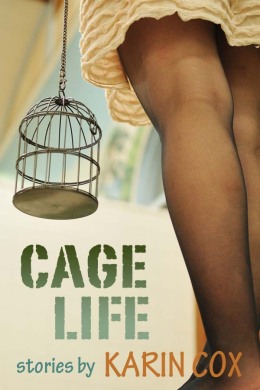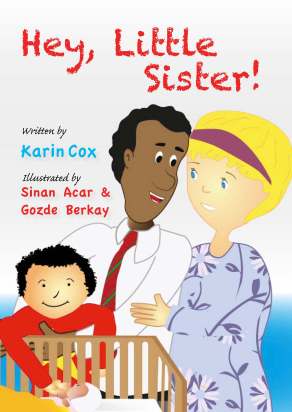
Image CC licensed by http://www.flickr.com/photos/wakingtiger/3157621994/sizes/m/in/photostream/
There’s been a lot written about the so-called divide between trade-published authors and indie, or self-published, authors over the blogosphere, and I’m afraid to say I’m about to add to the reams of virtual paper devoted to it. Two recently published surveys combine to underscore some of the key problems traditional publishing houses, or the Big Six (as these large publishing conglomerates are commonly known) might face when it comes to hanging on to their authors. They also draw stark contrast between the satisfaction levels of self-published and trade-published authors.
The first survey, the Taleist Self-publishing Survey, truthfully titled Not a Gold Rush, collated the results of 1007 self-published authors and asked about practices, attitudes, pricing, sales, and their satisfaction with their publishing efforts (Catherine Ryan Howard does a good break-down over on Catherine, Caffeinated).
The second—conducted by Harry Bingham’s editorial consultancy The Writers’ Workshop (with the help of the Society of Authors, The Crime Writers Association and The Romantic Novelists Association)—was based on the answers of 321 trade-published authors, asking them how they felt about publishers’ editing, cover art, and marketing. It also asked several telling questions about whether those authors would stick with their current publishers, and found that 40% of the respondents said they would move to a new house if “a reputable publisher offered [the] same advance”!
All in all, the Writers’ Workshop survey appeared to suggest that trade-published authors are happy with the editorial and creative input of publishers, but that the marketing and communication aspects seemed to leave a lot to be desired, and the way of the future, for the majority of authors, appears to be self-publishing (although for some, there was only a grudging acceptance of that).
The Wash-up of the Writer’s Workshop Survey
The participants’ biggest complaint seemed to be about marketing (and, unsurprisingly, indies like to moan about marketing, too). It seems from the study, that one of the major drawcards of going with a trade publisher—the marketing and publicity—may have been taken off the table. The marketing may be marginal or less than an author would do themselves as an indie (although given the lack of consultation and communication, it may be true that authors were simply unaware of marketing efforts). Only 19.7% of respondents said they were closely consulted about their publisher’s marketing plans, and 33.0% (the most respondents for that question) said “there was no attempt at consultation.” Worse still, in another marketing question 38.4% of respondents answered the question “Did you feel the eventual marketing campaign made good use of your skills, knowledge, passion, contacts and digital presence?” with “What marketing campaign? I never noticed one!” And a paltry 14% said they were “very happy” with their publisher’s marketing campaign.
Long lead times were problematic (46.6% rating it as the aspect of trade publishing they most disliked) as were “inadequate payments” (45.8%) and “insufficient consultation over the process (“42.4%)—something that self-publishers certainly can’t complain about! Communication was also a point of contention for some, with a combined 47% of respondents saying that communication was either “poor” or “tailed off” following publication of their book. 45.8% of participants were never even asked for feedback about their experience by the publishing house, answering “Nope. No one ever asked me what I thought” and guidance about the process at large was also on the slim side, which disgruntled 36.7% of participants.
And, in case you were wondering: the all-hallowed advance, for 40.1% of respondents, was not a multimillion dollar affair but a meager $5000.
When respondents were asked whether they might consider “cutting out a publisher altogether” to self-publish on Amazon, a whopping 74% appeared to be in favor of it (although, of those, 37.4% would be hesitant and saw it as a serious step to take). That left just 26% committed to having “a publisher to guide [them].” Dark days indeed. I, for one, can see why. If all the big publishers really have to offer is editorial, jacket and design influence, which savvy freelancers are now providing at reasonable rates to self-publishers, and a $5000 advance on royalties with little or limited marketing or input to back up sales, then they’re in trouble, big trouble.
In contrast, 44% of the self-published authors who participated in the Taleist survey said they found their self-publishing venture successful (with a further 51% admitting it was too soon to make that judgment). Only 5% were dissatisfied enough to call their venture “unsuccessful.” More telling, when the Taleist participants were asked, “Knowing what you know now, would you self-publish again?” an overwhelming 90% responded, “Yes, definitely” (no jumping ship here) and 93% of participants also said they would recommend self-publishing to other authors.
For me, it represents a real shift in author thinking. Where once the benchmark for author happiness was getting a trade publishing deal and holding a print book in your hand, it now appears that doing it yourself, and selling books online or in print, may be more likely to keep the smile on your face.
I have also been conducting a survey of my own on indie publishing promotional practices, and you can participate here. So far, more than 117 people have responded, but I would love more. The results will be published free in future on a new promotional website that is currently in production, and will help guide relevant content on that site. With just ten quick multiple choice questions, it takes minimal time to complete, and I’d welcome your feedback. Who knows maybe we can add more data that will help other authors decide which route they think will benefit them the most?






